Categories: Electrical Reviews
Number of views: 32416
Comments on the article: 2
Multimeter Probes - Variety Overview
Probes are an integral accessory of any multimeter. And complete with the device are always probes. Sometimes these are pretty high-quality probes that faithfully serve their master for years. And sometimes even a week does not pass since the purchase of the device, as one of the probes becomes unusable, for example, the wire from the tip or from the plug breaks, or breaks off, insulation breaks, exposing a thin core.
In such a situation, a person will certainly come to the idea of buying new probes, and preferably of better quality, more reliable, meeting the needs and requirements as much as possible, individual requirements depending on his occupation, where a multimeter is used regularly or from time to time.
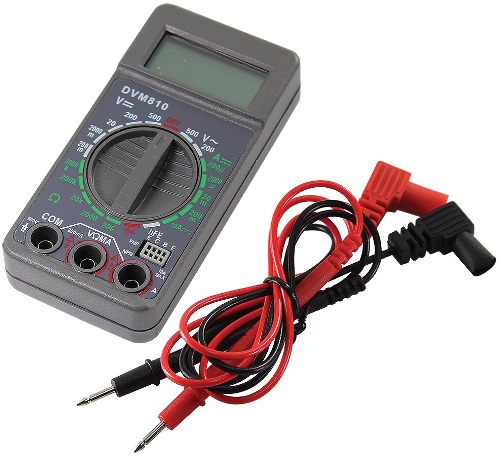
Of course, someone in such cases decides to repair the probes on their own, and there are a lot of materials on the network on this topic. You can even make improved plugs yourself, choose the best wires in good, flexible insulation, design probes to fit your needs, and the thing is in the hat. But what if a person simply has no time to do this, and you need to use a multimeter, you need new probes as quickly as possible, and you can’t miss the mark.
This article is precisely designed to help the consumer to sort out a little in the designated topic. What are the probes for multimeters? What are their features? Let's look at the nuances, advantages and disadvantages of various probes, as well as their purpose, depending on the design.
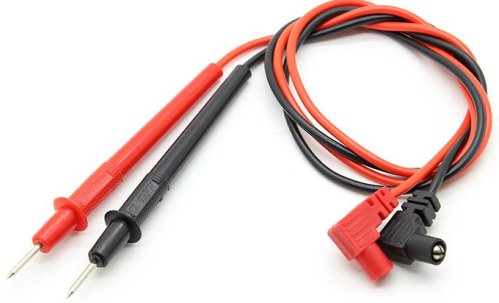
The cheapest, universal probes are pretty simple. They, of course, do not differ in any special reliability and durability. The insulation of the wires is made of PVC, the plastic plugs, as well as the tip holders. The tip electrodes are steel, a thin core is soldered to them inside the holder. If you accidentally pull the tip, it can come off, so use these probes with caution.
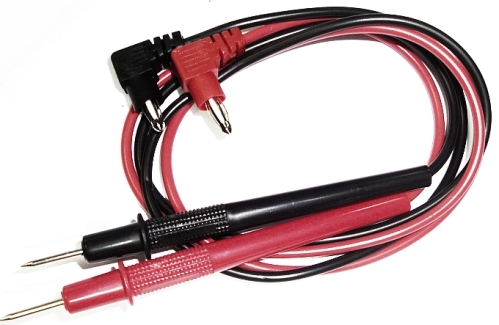
The plugs for different models of simple probes differ in the length of the central electrode, as well as in the size of the protruding plastic part of the plug housing.
For each device, the landing depth of the plug is different. For example, the simplest 830 multimeter has probes with a short electrode, 4 mm in diameter, and multifunction probes current clamp 266FT - with an elongated banana electrode, which also has a diameter of 4 mm.
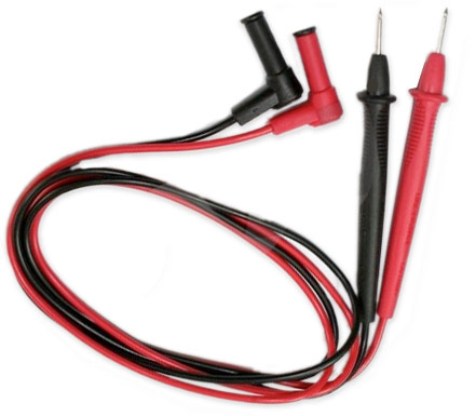
There are probes on the modern market with plug caps that differ in the shape of the holder, but these are already minor variations. If the wire is made of PVC, and the holders are plastic and without flexible sealed entries, then this is not the best option for probes. PVC insulation easily breaks when bent, especially near the plug.
If the probe wire has good flexibility, it is made of a material close in flexibility to silicone, and the bushings of the holders and plugs are tight and at the same time allow flexibility - these are the most reliable probes. A flexible tight entry of the holder allows even in case of accidental jerking not to pull the wire out of it.
The surface near the base of the holder, closer to the electrode, should not be slippery so that the probe is comfortably and firmly held in your fingers when measuring with a multimeter. It is better if the holder has a rubberized surface with small protrusions at the grip point with your fingers.
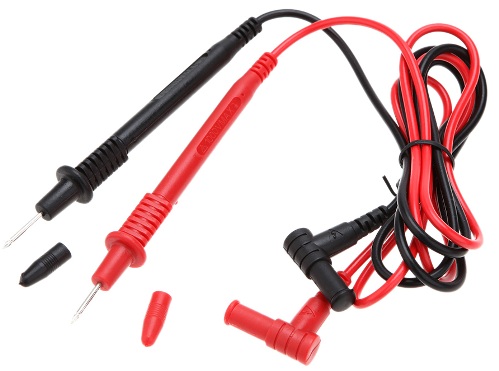
Sealed entries of the holders can be plastic, but such an input must necessarily allow flexibility, that is, have characteristic recesses. It is good if the electrodes and plugs are closed with protective caps, this will avoid puncture injuries, as well as contamination of the plugs, especially if the work is carried out in a dusty environment, as is the case at manufacturing enterprises.
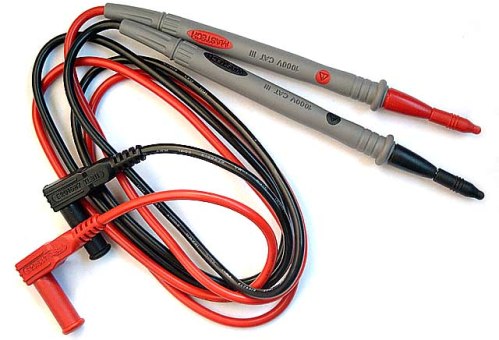
Branded probes are always more thoughtful, because they are designed taking into account operating experience and the sad consequences of defects. For this reason, high-quality branded probes are often necessarily equipped with sealed flexible inputs of holders and plugs, and the tips and plugs themselves have protection in the form of caps and plugs. The wire of the probes is flexible enough, and does not crack or tear from accidental kinks.
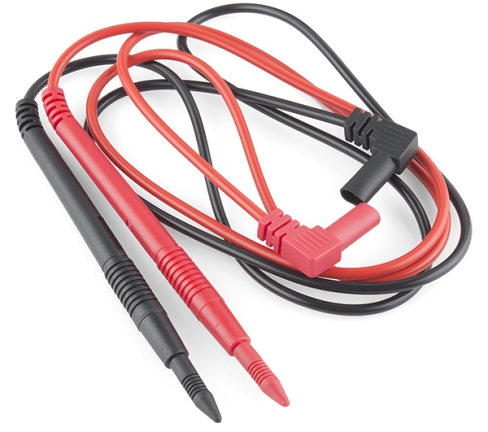
To take measurements when working with SMD components, on the boards or separately, or even for the purpose of piercing the insulation of the wire that you want to measure, probes with electrodes in the form of sharp needles are intended. Such tips are usually made of stainless steel or brass.
The needles necessarily have protective caps, obviously, to prevent accidental wounds, as well as to avoid damage to the needles themselves, so as not to bend, so as not to get in the wrong place, etc.
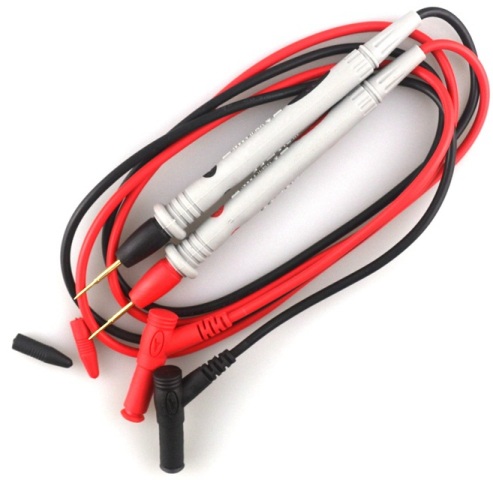
If your work is connected with SMD - mounting, then probes with tips in the form of needles are what you need. Such a needle can, if desired, scrape off the solder mask from the board, and measure directly on the board. Despite the fact that the needle is thin in appearance, a typical 600 volts is continuous, or a current of 10 amperes will be able to withstand this probe for a short time.
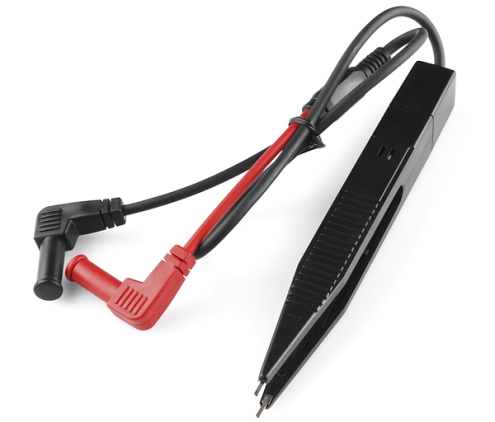
Especially for measuring the parameters of SMD components, there are special probes - forceps. With such tongs, you will accurately measure the required characteristics, and you will not miss the component, even on the board, even on the table.
The wire length of this probe is not long, and why is there a long wire? The device is always, when working with SMD, located nearby.
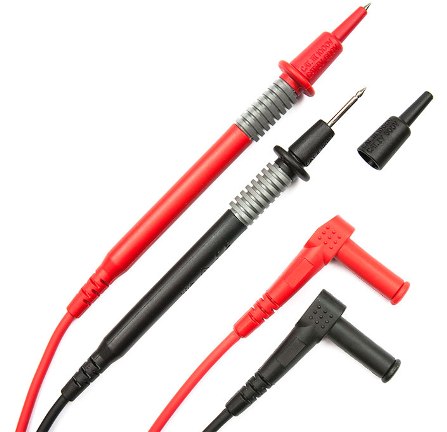
When special accuracy is required during measurements, and it is important not to touch the probe tip electrode with anything extra, probes with tips with holes at the ends come to the aid. With these probes, measurements will be safe for nearby components when it comes to the printed circuit board, as well as for adjacent conductors when it comes to measurements during the process. electrical work. Accidental closure during measurements will definitely not happen.
In some cases, crocodiles turn out to be a more convenient type of probe tip than sharp electrodes. There are such solutions on the market today.
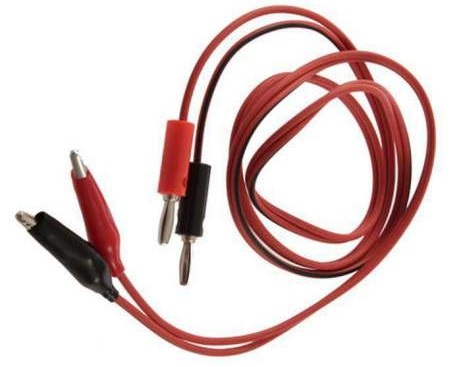
The wires of the probes can be short or long.
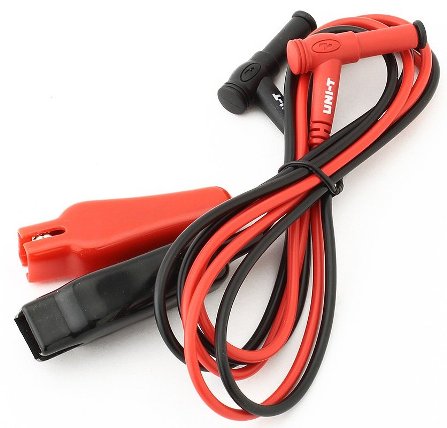
Crocodiles can have different sizes, so there are probes for solving any problems associated with measuring with a multimeter. Invariably, there is one thing - the crocodile is necessarily equipped with a reliable dielectric sheath.
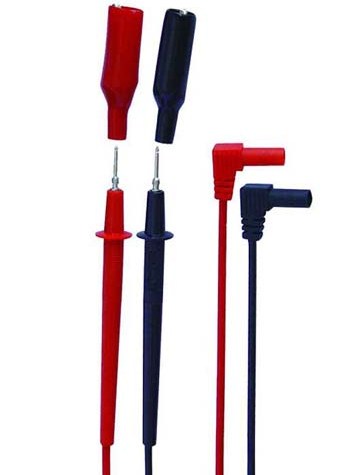
There are crocodiles in the form of connecting tips, as an addition to standard probes. It often happens that probes are equipped with multimeters equipped with such crocodiles that can be detached if desired.
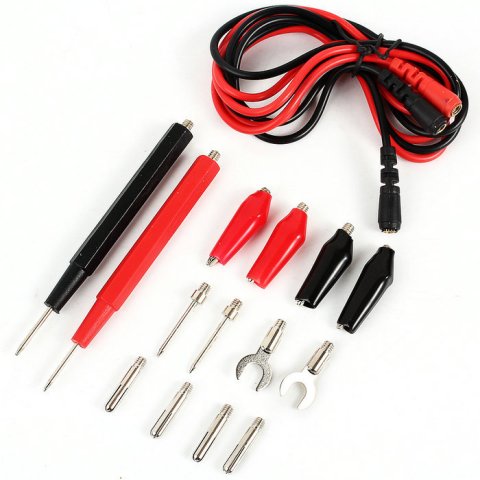
Speaking of connecting tips, one cannot but mention kits in which the probes, in addition to connecting wires, contain several varieties of tips in the set. Tips just screw in like nozzles.
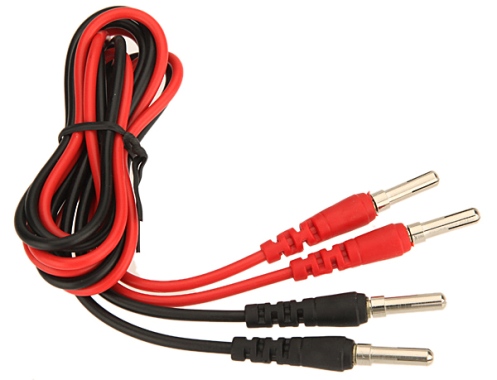
This is very convenient when you need different tips when taking measurements, for example, a terminal tip in the form of a terminal is screwed onto the ground, and the crocodile is alternately attached to different points of the measured chain.
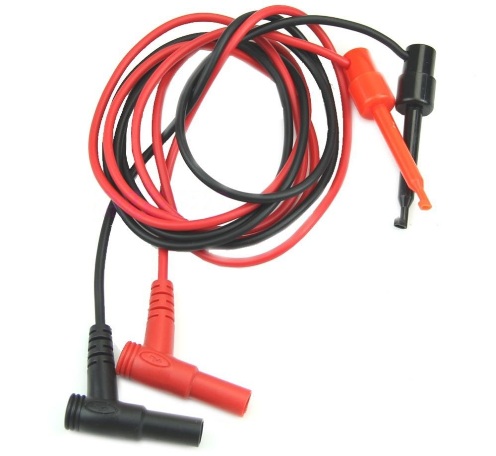
Electronic engineers working with output components will especially appreciate probes in the form of hooks, clamps, which are indispensable for measurements on printed circuit boards, and just for convenient retention of output electronic components for the purpose of taking measurements.
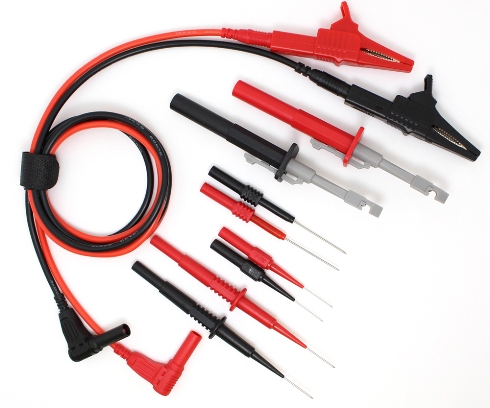
These hooks are also found in typical stylus kits, along with crocodiles and needles.
We hope that this short article gave the reader some general idea of what kind of probes for multimeters are and what various types of probes and ease tips open up in sets that make it easier to work.
See also on this topic: How to choose a multimeter, How to use a multimeter
See also at bgv.electricianexp.com
:
